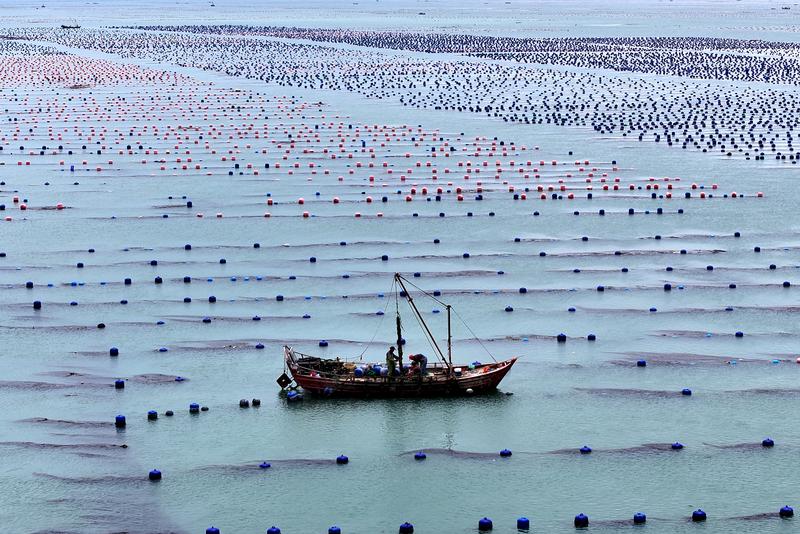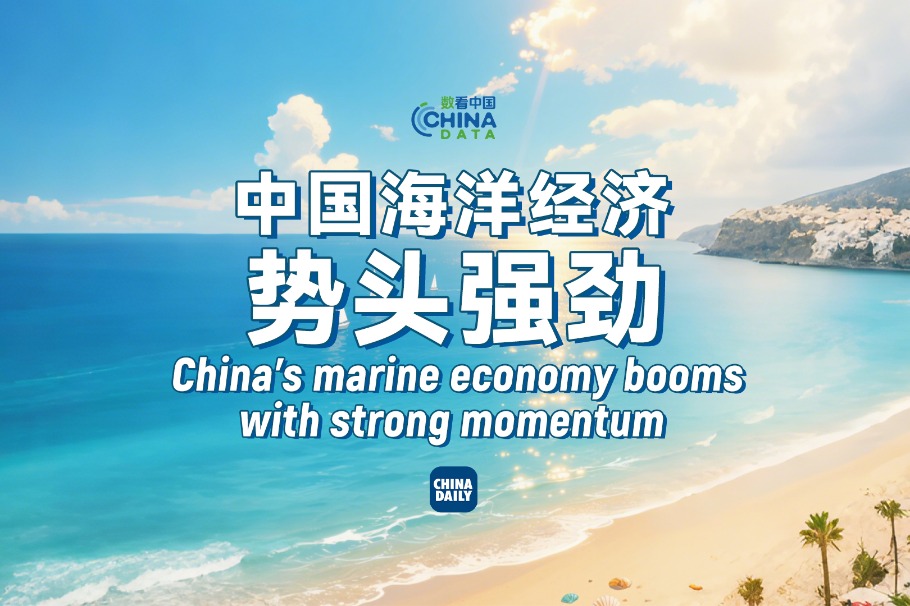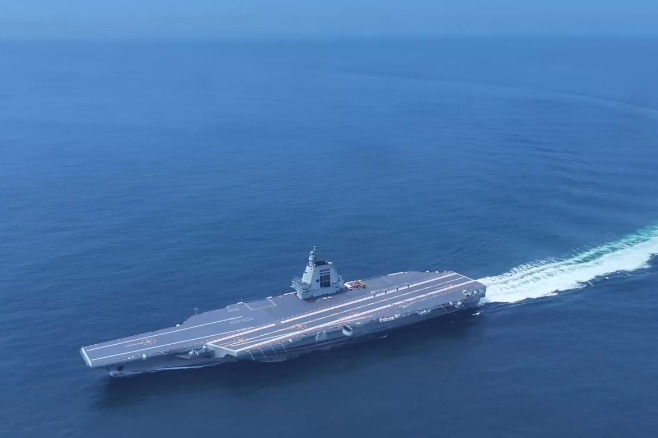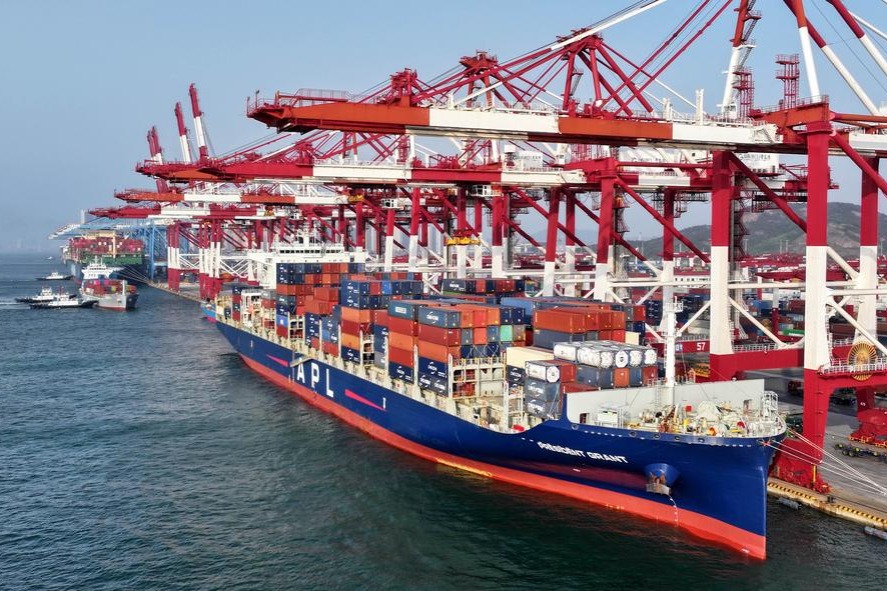Marine economy emerging as new growth driver


Fishermen operate their boats through waves in a marine ranch of Dinghai bay, Lianjiang county, Fuzhou city, Fujian province, on May 27, 2025. [Photo/Xinhua]
History shows that seas and oceans have played a key role in the rise of great nations. From ancient empires to modern powers, maritime strength has been a defining role in their prosperity and influence. No wonder China has long seen the ocean as key to its peaceful rise.
The oceans, covering more than 70 percent of the Earth's surface, are not just vast bodies of water; they are the cradle of life, the arteries of global trade, and a treasure trove of natural resources. Every breath we take, every drop of water we drink is intricately linked to the seas and oceans. As President Xi Jinping said, the ocean is of great significance to the survival and development of human society. It gave birth to life, connects the world, and facilitates development.
From fish and algae to oil and minerals, the oceans have them all. They are home to more than 80 percent of the world's biological resources, and can sustainably provide up to 3 billion tons of seafood annually without compromising ecological balance. They also contain an estimated 135 billion tons of extractable oil and 14 trillion cubic meters of natural gas, and their waters hold more than 80 types of chemical elements, many of which are critical to global industries.
Now, with the development of artificial intelligence and smart technologies, the marine sector is undergoing a profound transformation. From autonomous deep-sea robots to integrated sea-land-sky-space systems, the frontiers of ocean science are rapidly expanding.
China is embracing this transformation. Maritime culture — open, adaptive and resilient — has helped shape China's national character. That China's marine economy is surging forward is evident in the country's ocean-related GDP, which exceeded 10 trillion yuan ($1.39 trillion) in 2024 for the first time, cementing the sector's status as a driver of national growth.
Nowhere is this more evident than along China's eastern seaboard. With its natural harbors, dense transport networks and economic dynamism, eastern China is a hub of global connectivity. Seven of the world's top 10 container ports are located here, the Yangtze and Pearl river delta regions serve as arteries for domestic circulation and international trade, and cities such as Shanghai and Qingdao, Shandong province, are both industrial powerhouses and launching pads for China's global maritime engagement.
Eastern China is also home to world-class research institutions and robust financial systems, and has a deep talent pool. In Shanghai, leading universities and research institutes facilitate innovations in the marine economy. And in Shandong, home to one-sixth of China's coastline, 22 academicians — one-third of the country's top marine scientists — are achieving breakthroughs in deep-sea engineering and marine resource development.
In particular, Shandong is emerging as a symbol of China's maritime ambitions. Strategically located at the intersection of the Belt and Road Initiative and Northeast Asian trade routes, Shandong combines historical strength with renewed momentum. In 2024, the province's marine economy reached 1.8 trillion yuan, the second-largest in China. In fact, Shandong leads the country in marine aquaculture, processing and port logistics, with its ports handling more than 2 billion tons of cargo and ranking first in terms of sea-rail container intermodal transport.
Shandong is also home to some of China's most advanced marine technology hubs and tools — from "Deep Sea No 1" energy station to "Blue Whale 1" ultra-deepwater semi-sub rig, and "Jiaolong" manned submersible. They are not only symbols of China's technological might, but also a means to build sustainable blue economy.
Despite all this, Shandong still faces challenges. As such, it should optimize its industrial structure, close the gaps in high-end marine equipment manufacturing, and more intensively restore its ecology, while providing stronger support for marine services and emerging industries, and helping deepen coordination between ports, cities and industries.
As climate change intensifies, boosting environmental resilience and emergency response systems has become critical.
Yet Shandong seems poised to scale new heights. By fostering industry partnerships, advancing open innovation platforms such as the "Laoshan lab", and improving ecosystem governance, the province can lead the country's push toward a modern, sustainable marine economy.
With a global outlook, Shandong is helping build a powerful marine economy, which would advance Chinese modernization. The tide is rising, and Shandong is ready to ride the wave.
Yin Kedong is head of, and Huang Chong an associate professor at, the Institute of Marine Economics and Management, Shandong University of Finance and Economics.
The views don't necessarily represent those of China Daily.


































